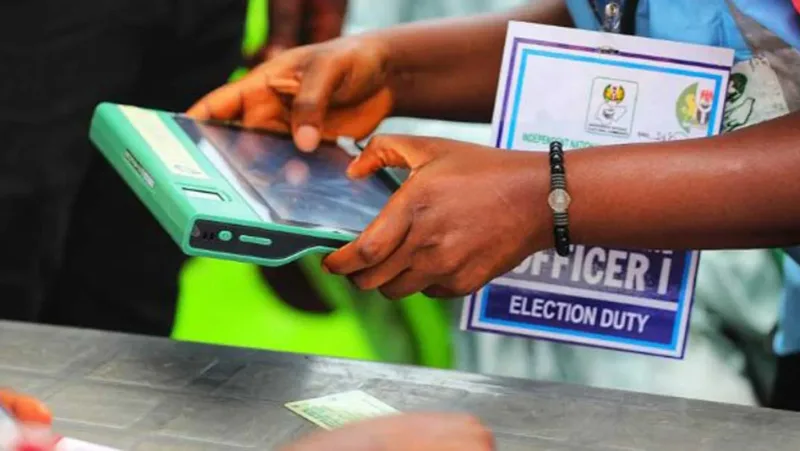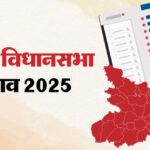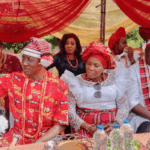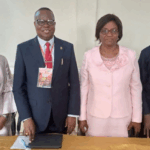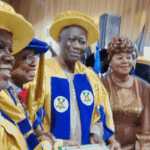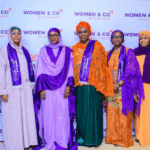…Oshiomhole points fingers at fellow politicians
Many Nigerians and civil society groups have raised concerns over the integrity of ongoing efforts to reform the Nigeria Electoral Act 2022, and questioned whether politicians who benefit from electoral malpractice can bring about genuine change.
Concerns are arising following a fresh attempt by the National Assembly to amend the Electoral Act 2022, less than three years after it came into force.
Considering the flaws seen in recent elections and the desperation of politicians to win at all costs, citizens have expressed doubts whether lawmakers and many other politicians who benefit from the current flawed electoral system are actually campaigning for changes in existing laws to strengthen the electoral process.
Other observers have also expressed doubts over the readiness of President Bola Ahmed Tinubu to sign such amendments into law.
Lucky Uwem, a lecturer, told BusinessSunday, “I don't think they will do anything that won't benefit them. But if they do, it will need the president's approval, that's when we will know Tinubu's sincerity.”
He said, “For me, I doubt whether the President will allow free and fair elections; what is happening is just a fiasco, a theatrics.”
There are also those who have questioned the timing of the current amendment, saying that MPs do not have time on their side.
“Can they make any progress and make the necessary amendments within the shortest possible time? I am afraid, because some amendments to the Electoral Act also require amendments to the Constitution and you know how difficult that can be,” public policy analyst Temitope Musovo told BusinessSunday.
Prominent politicians and civil society groups have also called for the strengthened independence of INEC, effective prosecution of election offenders, and continued citizen participation in the reform process.
Political commentator, Emeka Nwosu, said that many of those pushing for electoral amendments were direct beneficiaries of the flaws in the existing system.
Nwosu said, “It is unrealistic to expect meaningful reforms from individuals who gained power through electoral malpractice.” “They will only make changes that serve their political interests.”
Similarly, Aisha Abdullahi, executive director of Votewatch Africa, said that lack of political will remains a major obstacle to credible elections.
While the 2022 amendment of the Act introduced innovations such as electronic transmission of results and strict campaign finance rules, observers said all of these were seen in violation, even by the umpire.
Stakeholders have complained that enforcement remains weak, with cases of vote buying, ballot rigging and intimidation still widespread during recent elections.
With complaints over the organization of the 2023 election, stakeholders say amendments to the current Electoral Act were inevitable, although the process has been slow, but federal lawmakers have stepped up efforts to get the job done in recent weeks.
Also read: 2027 elections: Nigeria needs electoral reforms and judicial reforms
In the draft amendment unveiled during a public hearing jointly held by the Senate and House committees on electoral matters last week, the National Assembly is proposing major changes to the election timetable; They want the 2027 presidential and gubernatorial elections to be held in November 2026, six months before the end of the current administration's term.
The move, which is part of the Election Act (Amendment) Bill 2025, aims to allow all election litigations to be concluded before the May 29, 2027, swearing-in of new leaders – ending the tradition of pending court cases throughout the tenure of the new government.
Under the proposed amendment, elections to the offices of President and Governor should not be held more than 185 days before the expiry of the tenure of the incumbents.
Section 4(7) of the draft reads: “Elections to the office of President and Governor of a State shall not be held later than 185 days before the expiration of the term of office of the last holder of the office.”
Chairman of the House Committee on Electoral Matters, Adebayo Balogun, said the reform is aimed at ensuring that all disputes arising from elections are resolved before the winners assume office.
“We are proposing that all tribunal judgments be disposed of within 90 days, appeals within 60 days and Supreme Court judgments within the remaining days, ensuring that everything is completed within 185 days,” he said.
To support the reform, the National Assembly will also amend sections 285 and 139 of the 1999 Constitution, which currently govern the time limits for election disputes.
The legislators are also seeking to modernize Nigeria's voting system through mandatory electronic voting and electronic transmission of results, a long-standing demand of electoral stakeholders.
Also read: 2027 elections: Electoral reforms must end manual collation of election results
Nigerians should give NASS the benefit of the doubt – experts
Citizens who have expressed disappointment over the move by the National Assembly to amend the Electoral Act have been urged by experts to give lawmakers the benefit of the doubt as the amendment is an important step towards strengthening democracy in Nigeria.
“The amendment to the Electoral Act is important towards strengthening our democracy, and if lawmakers are truly committed to addressing the shortcomings seen in previous elections, then this step deserves cautious optimism.
“Most importantly, the process must be transparent, inclusive and guided by the collective interest of Nigerians rather than political convenience,” said media and development businessman Hameed Muritala.
Similarly, Founder/Chairman of the Open Forum, Citizen Matthew Kofi Okono, said the move by the 10th NASS to amend the Electoral Act, although almost late, was better than never.
According to him, the question of his integrity in the process has arisen due to lack of trust in the system as many public office holders are beneficiaries of electoral robberies.
“However, it should be noted that although the Professor Mahmud Yakubu led INEC failed to adhere to its accepted guidelines on electronic transmission of results in real time despite spending over N130b on technology for the 2023 elections, citizens must place an irreversible demand on NASS to not only amend the 2022 Electoral Act but ensure that umpires including Those who committed fraud should be treated as civilian coup plotters and dealt with in accordance with the law.” He noted.
Irregularities were seen in Nigeria's elections
Despite the efforts of electoral umpires, INEC and security agencies and other officials, elections in Nigeria are commonly marred by irregularities and controversies.
Nigeria's elections are still vulnerable to violence and the country has a long history of violence during elections and this was tragically manifested in the 2023 general elections.
Recent off-cycle elections in about four states remain the same after 2023. Multiple media reports put 39 deaths in the run-up to the 2023 elections, while the European Union claimed in a media briefing that more people died. Official figures have not been released by the police or the Election Commission.
The elections were marred by violence in some parts of the country: Lagos, Delta, Kogi and Kano states. Violence was also recorded in Enugu and Ebonyi states.
The European Union Election Observation Mission also noted how violence disrupted voting in some areas.
In Enugu, the Labor Party senatorial candidate for Enugu East was assassinated 72 hours before the February elections.
As a result, most election results are challenged in court, with the court being the final determiner of election winners in Nigeria over the years.
As the process of amending the Electoral Act gathers pace in the National Assembly ahead of the 2027 general elections, calls are intensifying for the establishment of the National Electoral Offenses Commission (NEOC) or Electoral Offenses Tribunal, a new independent body empowered to investigate, prosecute and punish electoral offenders.
Such bodies observers say have become inevitable following the failure of electoral bodies and governments to successfully arrest and prosecute electoral criminals across Nigeria over the past few years.
Lagos Communications Director of the African Democratic Congress (ADC), Mabel Oboh, said the establishment of an Electoral Crimes Commission is crucial to improving electoral integrity in Nigeria.
According to him, a dedicated body would ensure accountability for electoral malpractices, and promote a more transparent process.
“Additionally, it is necessary to reform the Independent National Electoral Commission (INEC) to prevent control by a few individuals, which will enhance Nigeria’s democracy,” Obo told BusinessSunday.

